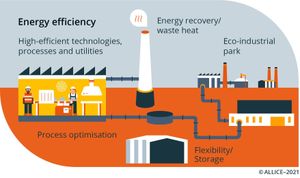General Motors (GM) has announced tough cuts to its workforce, laying off nearly 1,000 workers globally, with the majority of these reductions happening within the United States. Sources have described this move as part of GM's broader strategy to streamline operations amid increasing competition and to refocus on electric vehicles (EVs) and software development.
The automaker confirmed the job cuts without providing specific numbers but stated, "To win in this competitive market, we need to optimize for speed and excellence. This continuous effort has led to some reductions in our team." This statement suggests the company is shifting priorities as it navigates the complex and often costly transition to EV technology.
Among those affected, the biggest impact appears to be on the technical workforce at GM's tech center located in Warren, Michigan, where 507 jobs will be eliminated. Earlier this year, GM had also laid off over 1,000 workers within its software department as part of its attempt to streamline operations.
This recent action follows significant layoffs earlier this year when GM and various other major automakers began to reduce workforce sizes as they faced pressures to innovate and become profitable within the competitive EV market. Just this September, GM cut approximately 1,700 positions at its Kansas manufacturing facility, and back in April, close to 5,000 salaried employees accepted buyout packages from the company.
Across the auto industry, the urge to cut costs has intensified, with competitors like Stellantis and Ford also making headlines for large-scale layoffs. Stellantis, for example, has eliminated thousands of positions this year, including 2,450 workers at one of its Michigan plants back in August, and 1,100 at another location recently.
Ford has similarly faced difficulties; shifting production at its F-150 Lightning electric pickup plant through the end of the year due to weak demand for EVs has raised concerns about overcapacity and the sustainability of current workforce levels.
GM is also bravely committing to re-position itself as a leader amid this tumultuous shift toward electrification. The automaker has set ambitious goals aimed at cutting 2 to 4 billion dollars from its losses associated with EV development next year.
This strategic refocusing is not merely reactive; it reflects broader trends across the automotive industry as companies like Nissan and Volkswagen have also begun warning of significant layoffs and restructuring. These moves are largely driven by the massive financial burden associated with developing advanced EV technologies, which have proven to be far more expensive than traditional gasoline counterpart development.
The layoffs signal the stark reality of the current automotive market. Traditional automakers are locked in fierce competition not only with each other but with electric-only rivals like Tesla, as well as with the rapidly growing influence of international competitors from China and other regions. GM, which, along with its peers, has been resting on its past successes, is now compelled to confront these realities through major operational shifts.
GM’s predicament echoes the sentiments expressed earlier this year when executives admitted the challenge of transitioning to electric vehicles—both technologically and financially—is steeper than anticipated. The forward-looking transformations are necessary as indicated by recent sales, where EV purchases have seen growth, but not at the pace required for sustained profitability.
The company's recent movements reflect back on its historical strategies where expansive growth was accompanied by workforce increases, but as it becomes increasingly clear, the era of unchecked expansion has shifted toward prudent financial management and strategic reductions.
Through all these intricacies, GM continues to aspire toward its vision of leading the future of transportation, but the realities of the current economic climate—a clash of ambition with fiscal responsibility—will shape its path forward significantly.



